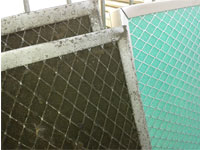2019-11-20

How often do commercial filters need to be replaced? It’s a common question for design engineers and those who are tasked with servicing and maintaining equipment, but the simple answer is… it depends.
In clean, controlled indoor environments like data centers or switching offices, it’s typically best to change filters 3-4 times a year based on a disciplined maintenance calendar.
For harsher environments, such as outdoor enclosures, or for highly active systems like those used in medical, military or telecom capacities, the frequency of changing filters is exponentially higher. In most cases, the need to replace filters in specialty equipment is dictated by maintenance sensors. When sensors indicate that temperature, pressure and air flow are registering outside of optimal operating parameters, it’s typically a good sign that it’s time to change filters. Replacements in these environments can and still should be performed on a regimented basis but it may take some trial and error to determine the optimal schedule.
Bottom line, filters that are loaded with dust and debris reduce airflow, which leads to inefficient system operation, and in some cases, equipment failure.
Two simple things you can do to minimize the risk associated with clogged filters are to change them regularly and make sure you always have an adequate supply of replacement filters on hand. Developing (and sticking to) a filter replacement calendar is the best way to ensure all systems and equipment function efficiently throughout the year. As for always having replacement filters readily available, feel free to contact us. Universal Air Filter Company is a leading OEM filter supplier providing replacement filters for existing applications and new filter designs to support product development. We’re here to help.
Visit the link below for our general filter service and maintenance guidelines.